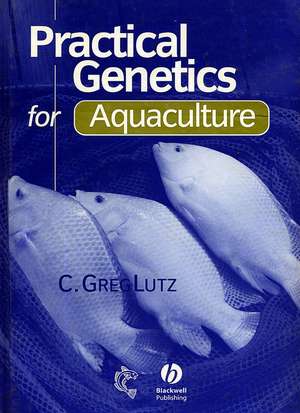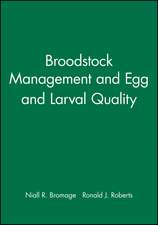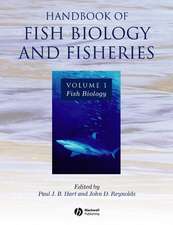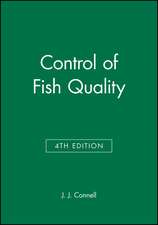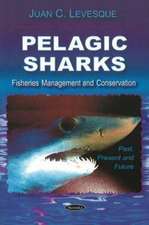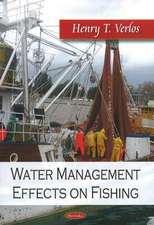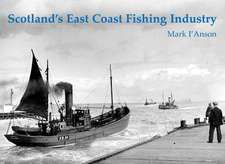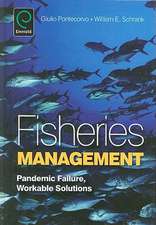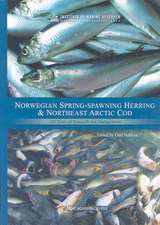Practical Genetics for Aquaculture
Autor CG Lutzen Limba Engleză Hardback – 12 aug 2001
Practical Genetics for Aquaculture provides reviews of the fundamental theory and examples of practical applications for numerous aspects of genetic improvement in aquaculture. Contents include thorough details of genetic concepts and terminology, chapters on genetic change for numerous traits and the resultant increased yields and profitability, control over reproduction, the development and performance of transgenic aquatic organisms and finally a chapter devoted to potential risks to aquatic habitats and populations posed by all forms of genetically improved cultured species.
Written in a user-friendly and succinct style by Dr C. Greg Lutz, who has many years' experience teaching, researching and refining practical applications, this exciting and useful book is a vital source of commercially important information to the aquaculture community. Personnel involved in aquaculture including fish farmers, teachers, students and researchers will find this book invaluable and it should be made available on the shelves of all libraries in government departments, universities and research establishments where aquaculture is practised, studied or taught.
Preț: 945.74 lei
Preț vechi: 1039.27 lei
-9% Nou
Puncte Express: 1419
Preț estimativ în valută:
180.97€ • 197.37$ • 152.59£
180.97€ • 197.37$ • 152.59£
Carte tipărită la comandă
Livrare economică 24 aprilie-08 mai
Preluare comenzi: 021 569.72.76
Specificații
ISBN-13: 9780852382851
ISBN-10: 0852382855
Pagini: 252
Dimensiuni: 170 x 256 x 19 mm
Greutate: 0.73 kg
Editura: Wiley
Locul publicării:Chichester, United Kingdom
ISBN-10: 0852382855
Pagini: 252
Dimensiuni: 170 x 256 x 19 mm
Greutate: 0.73 kg
Editura: Wiley
Locul publicării:Chichester, United Kingdom
Notă biografică
Descriere
Over recent years there have been major advances in the application of molecular, biotechnological and genetic techniques to a wide range of aquatic species. Until now, many working in a hands--on capacity in the area of aquaculture have not known what the benefits of this work could be to them.
